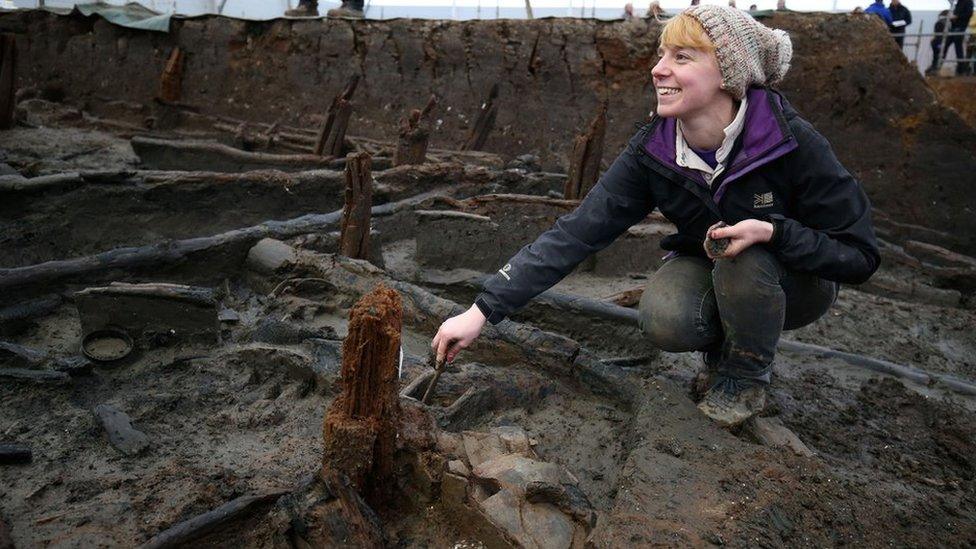Bronze Age 'recycling bin' found at quarry site
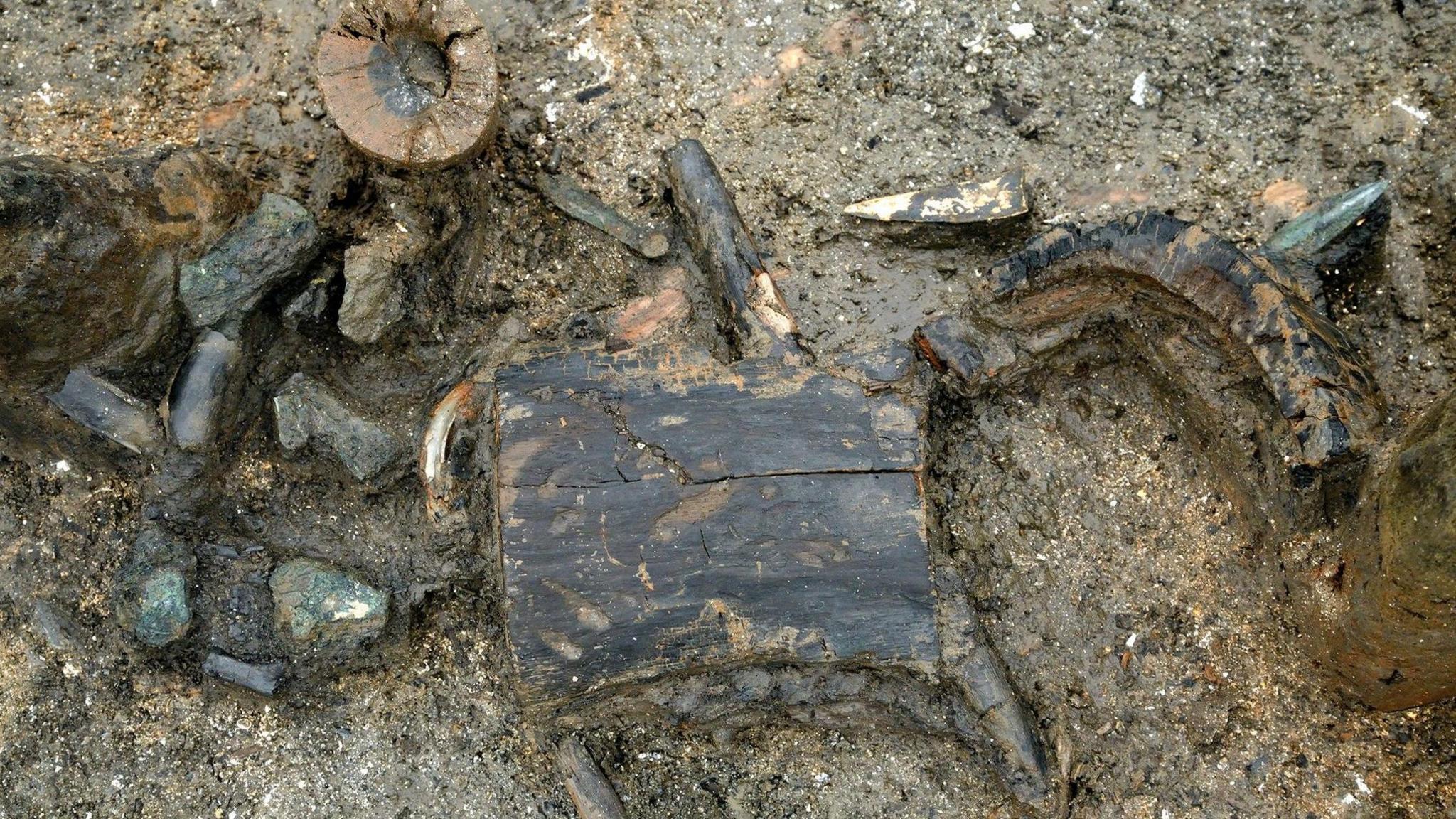
The remains of a burnt wooden bucket filled with scrap metal is evidence people in that era were not primitive, experts have said
- Published
The discovery of a 3,000-year-old "recycling bin" used to collect broken objects shows that people from that era were "not very different to us", an expert said.
A prehistoric settlement, dubbed Britain's Pompeii, was occupied for less than a year before it burned down, leaving a wealth of well-preserved artefacts uncovered at Must Farm quarry in Whittlesey, near Peterborough.
This includes the remains of a burnt bucket made from two pieces of wood filled with scrap metal including axes and spheres ready to be melted down and recast.
Archaeologist Dr Chris Wakefield said it was "rare" to find such details about people's lives in the Bronze Age.
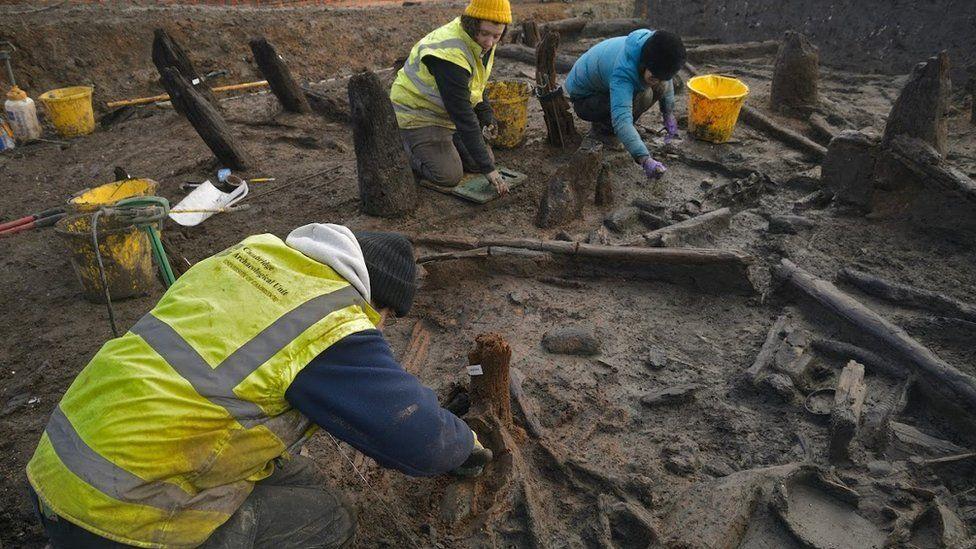
The Must Farm site has been described as "an amazing time capsule" by archaeologists - wood that was not destroyed by fire was preserved in the silt
The remains of a settlement of about 10 circular wooden houses on stilts built above a river, believed to be home to 50-60 people, was discovered by the Cambridge Archaeological Unit between 2015 and 2016.
The cause of the blaze which destroyed it in 850BC is not known, but it could have been an attack or started accidentally and quickly spread between the closely packed homes, Dr Wakefield said.
"One of our favourite aspects of working on the Must Farm settlement was coming across snapshots of life at the site.
"This is one of many objects found in our excavation and it again shows signs, that these people thought about recycling and reusing their metal by melting it.
"It shows we can't just assume they were primitive."
Experts said the site was the only known stilted Bronze Age roundhouse settlement in Britain.
Digging has also revealed "by far the largest find of glass beads from any Late Bronze Age context in Britain".
A cumulative report of the findings, external from the last eight years of excavation work carried out by the Cambridge Archaeological Unit, has been published by McDonald Institute for Archaeological Research.
Follow East of England news on Facebook, external, Instagram, external and X, external. Got a story? Email eastofenglandnews@bbc.co.uk, external or WhatsApp us on 0800 169 1830
- Published20 March 2024
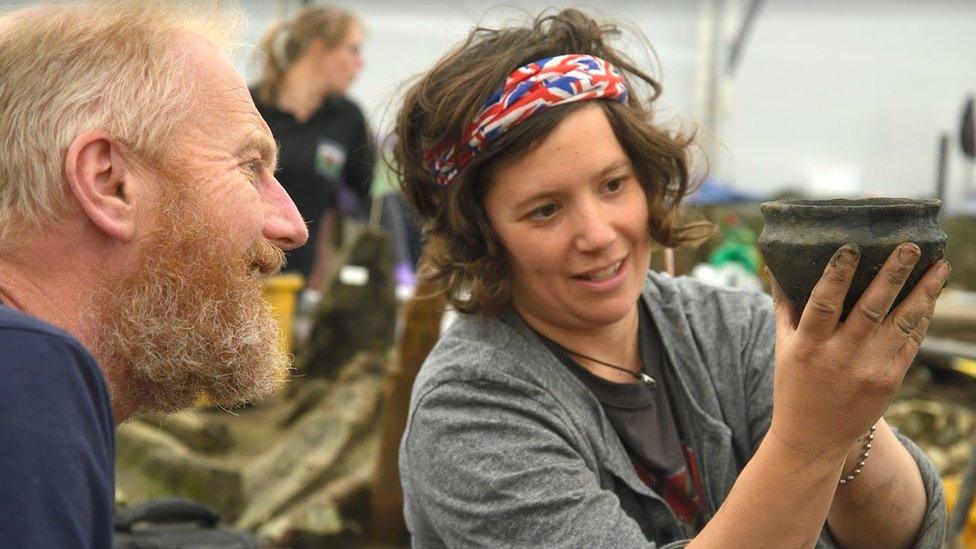
- Published9 March 2023
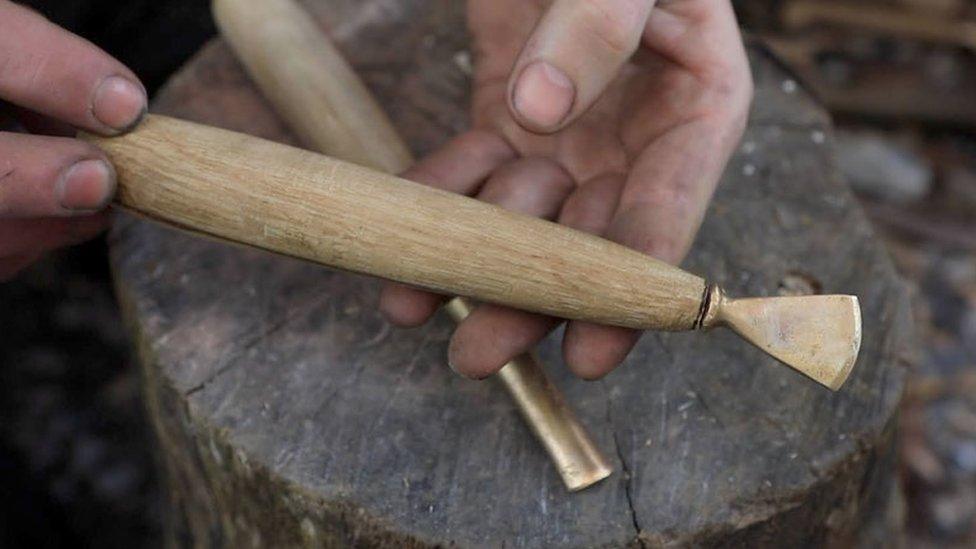
- Published12 January 2016
